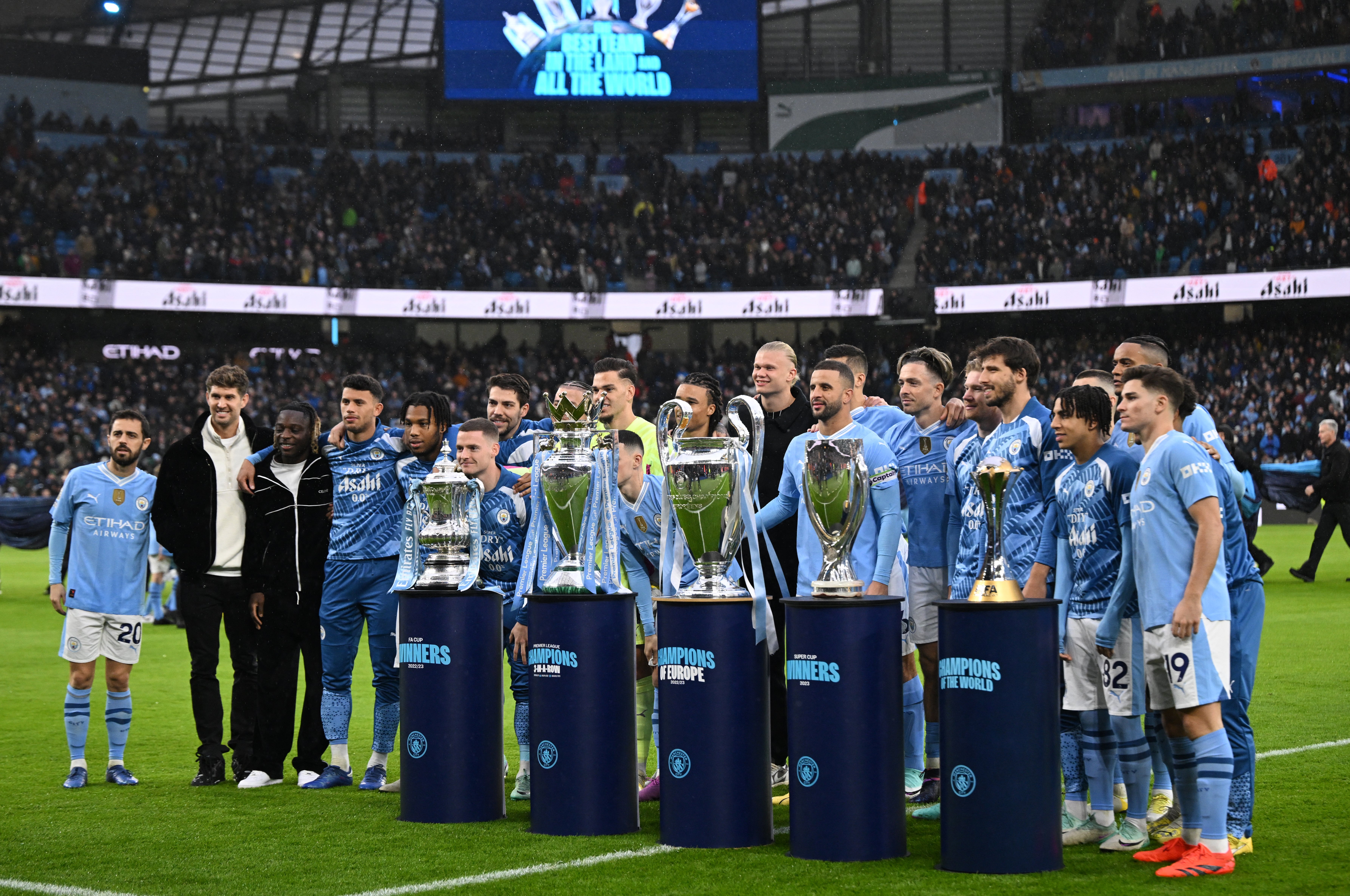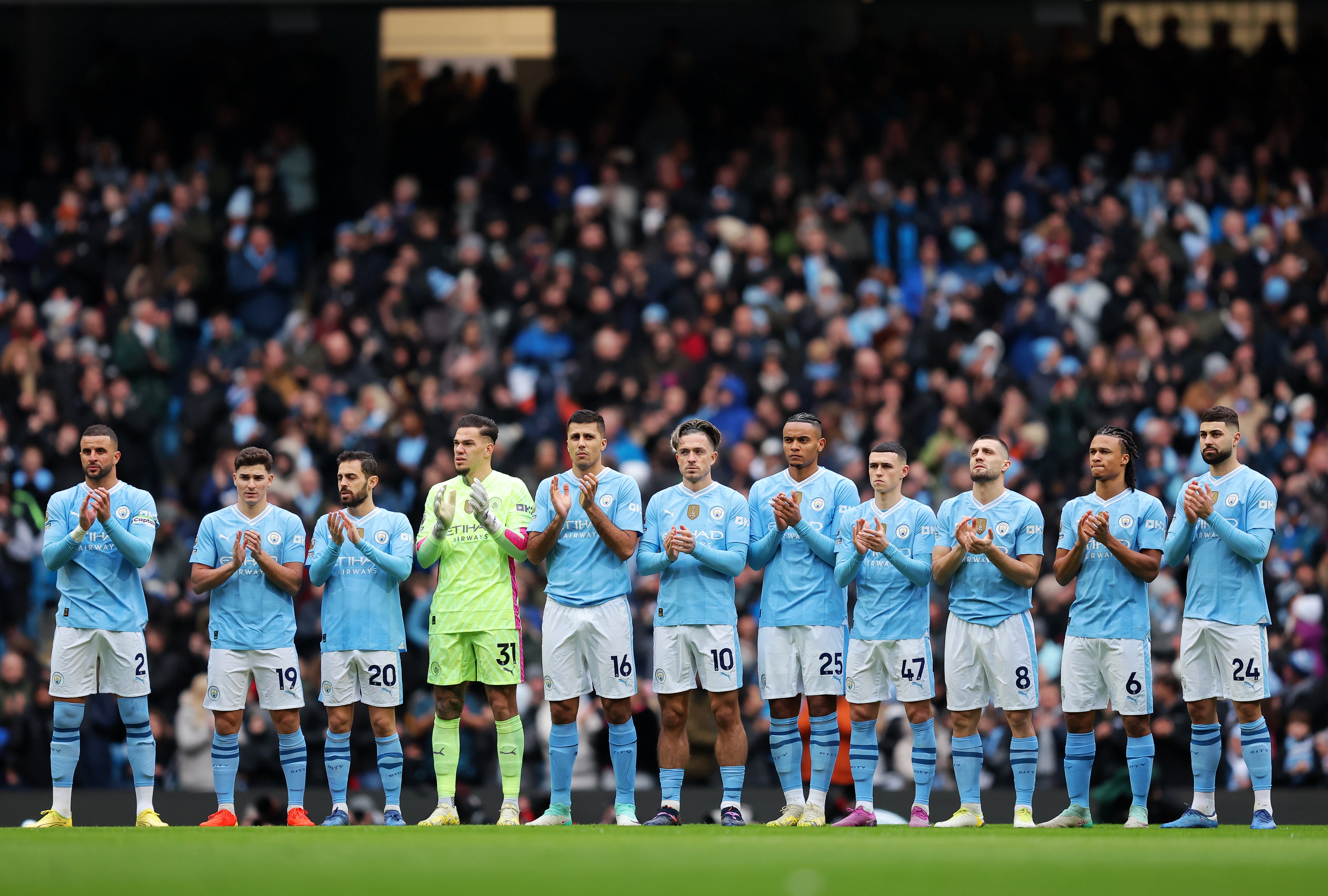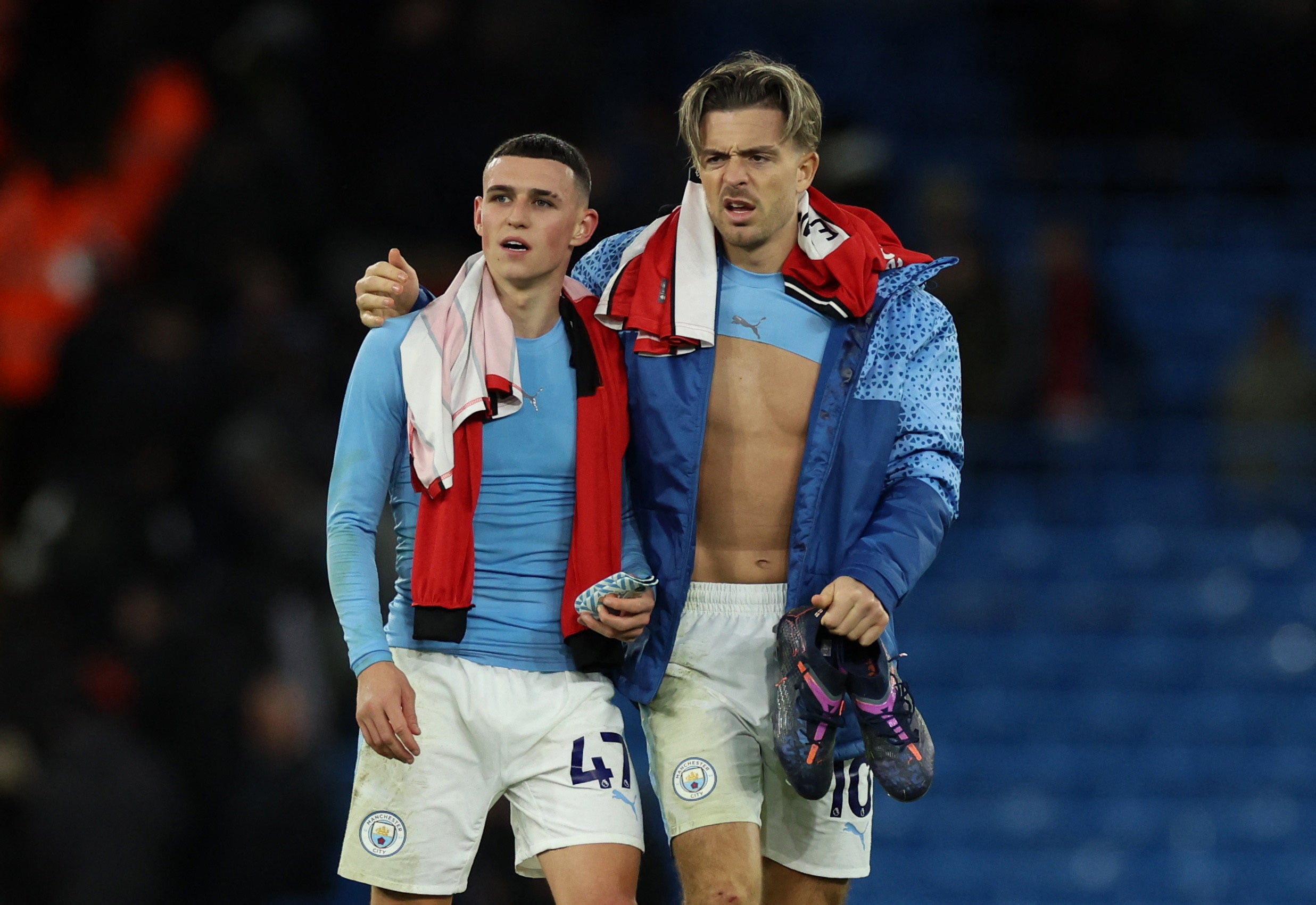Manchester City are still the Premier League title contenders everyone else fears
They may have their flaws but City’s recent past suggests they could become unstoppable at any moment

Your support helps us to tell the story
From reproductive rights to climate change to Big Tech, The Independent is on the ground when the story is developing. Whether it's investigating the financials of Elon Musk's pro-Trump PAC or producing our latest documentary, 'The A Word', which shines a light on the American women fighting for reproductive rights, we know how important it is to parse out the facts from the messaging.
At such a critical moment in US history, we need reporters on the ground. Your donation allows us to keep sending journalists to speak to both sides of the story.
The Independent is trusted by Americans across the entire political spectrum. And unlike many other quality news outlets, we choose not to lock Americans out of our reporting and analysis with paywalls. We believe quality journalism should be available to everyone, paid for by those who can afford it.
Your support makes all the difference.Pep Guardiola was reflecting on Manchester City’s recent past, studded with silverware, a near guarantee of glory. “It doesn’t mean we are going to do it in the future,” he counselled. And yet the spectre of City looms large over their rivals. “City are not 15 points ahead [as they can be] or they are usually a few points ahead and there is a bigger gap to the other teams and then in January, February and March they go full throttle,” said Jurgen Klopp, who has more experience than anyone else of chasing City in the title race.
It felt like proof that a City surge is almost priced in by everyone else: it is the factor they cannot control, the element that could turn a close contest into a cruise. And yet, Guardiola noted, City went to Saudi Arabia with him fielding questions that they could be 12 points behind Liverpool by the time they kicked a ball in the Premier League again. Instead, they reached the half-way point in their campaign a mere two behind the leaders, with the sense their best is yet to come.
But it is City’s past that makes them so ominous. There is a case for arguing they have been the best team in the first part of the campaign, but the argument could be refuted by citing City’s shortcomings. Their league campaign can be divided into three parts: seven straight wins at the start, two more after the Club World Cup but in between, a 10-game stumble that yielded only three victories and 13 points.
City have three away defeats already; they still have some of the more testing trips to come, including to Newcastle, Liverpool, Brighton and Tottenham. Yet while they have the status as the best team in the world – and Sheffield United’s George Baldock used that phrase to describe them on Saturday – they have not beaten the best in the Premier League. So far, they have two points from four games against the rest of the current top five.
At most, City have produced three performances of such authority and excellence to make them look like champions-in-waiting: at Manchester United and West Ham and in adversity at home to Newcastle. And yet Guardiola feels they have been the better team in each of their draws this season: in particular, he rues the three at home against Liverpool, Tottenham and Crystal Palace. Win each and City would have reached half way with 46 points, on course for 92: instead, they have 40, which has not been title pace in recent seasons. There was an uncharacteristic sloppiness in the matches when they lost leads. It may yet prove decisive.

Go by expected goals and Guardiola is largely vindicated. City have only been inferior in two games so far: the 4-4 draw at Chelsea and at Villa Park, where Aston Villa outshot them by a huge margin, 22-2.
Look at City’s attack and they can be branded the best: top scorers, with the highest expected goals and the joint most shots on target, all when the most creative player of recent seasons has only played 23 minutes and a scoring phenomenon has missed their last four matches.
Study City’s defensive record and the picture is more mixed: with the best expected goals against and the second fewest shots on target conceded, but having let in five more goals than Liverpool and with a lone clean sheet in the last nine outings.
Examine their squad and there is the curiosity of the £77m centre-back Josko Gvardiol, who is played almost exclusively at left-back. So far, only one of City’s summer signings – Jeremy Doku – can be deemed a success; Mateo Kovacic at least started well while Matheus Nunes has made a negligible impact.
If City’s transfer business has left them weaker than the team who went on those extended winning runs, some of last season’s talismanic figures add to the sense there is untapped potential: Jack Grealish’s form has been largely underwhelming, Ruben Dias’ mixed, Ederson has one of the lowest save percentages in the division and John Stones has been limited to 413 minutes in the Premier League.

They may see more of him in the second half of the season. They almost certainly will benefit from more of Kevin De Bruyne, hurt in August at Burnley, ready to return. It says something that, in his absence, five other players registered at least four assists in the opening half of the league season. De Bruyne, though, is the passer par excellence.
City took 10 points from the four games Erling Haaland has missed, albeit against bottom-half sides, yet their season, in its own way, has illustrated the difference the outstanding individuals can make, whether Stones, De Bruyne or Rodri, who has missed three league games; City have lost all three.
And yet they reach the start of the year on the shoulders of the leaders. City offer the prospect of improvement, the moment where everything clicks and they feel unstoppable. For now, they are merely one of several flawed contenders. Yet if Guardiola is entitled to point that history does not automatically repeat itself, that past and their pedigree makes them the force everyone else fears.
Join our commenting forum
Join thought-provoking conversations, follow other Independent readers and see their replies
Comments